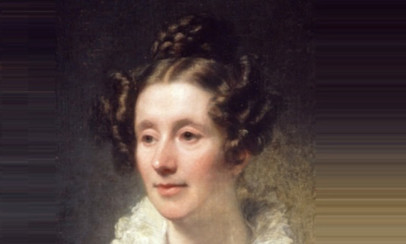Fife scientist, science writer and translator Mary Somerville’s face will adorn the Royal Bank of Scotland’s new polymer £10 notes after a public vote, it has been confirmed.
But there was controversy over the move after it emerged concerns had been raised about a late flurry of votes from outside the UK for another shortlisted contender, Thomas Telford, with bank bosses deciding to select Somerville, pictured below, as the winner in any case.
The announcement follows a week-long poll to choose between three historical Scottish figures Somerville, Telford and James Clerk Maxwell judged to have made significant contributions to the field of science and innovation.
Somerville, who was born in Jedburgh but brought up in Burntisland, was a true pioneer and was jointly nominated to be the first female member of the Royal Astronomical Society in 1835.
RBS confirmed last night that there had been a huge late influx of votes from overseas for civil engineer Telford, but decided to choose Mary Somerville as the winner as she had been the “clear leader” throughout the process with the vast majority of her votes coming from the UK.
The new notes should be in circulation in the second half of 2017.
Commenting on the announcement, Malcolm Buchanan, Chair of RBS’s Scotland board, said: “I was overwhelmed by the response to this initiative a first for the Royal Bank of Scotland – and would like to thank all those who took the time to vote.
“Having the opportunity to choose the face of our new £10 notes obviously meant a great deal to a great number of people.
“Any of our final nominees would have been worthy winners and we wanted to make sure that our choice properly reflected the wishes of those who took part.
“Mary Somerville’s immense contribution to science and her determination to succeed against all the odds clearly resonate as much today as they did during her lifetime.”
At a time when women’s participation in science was strongly discouraged, Mary Somerville was a true pioneer and was jointly nominated to be the first female member of the Royal Astronomical Society in 1835.
Somerville’s writing influenced James Clerk Maxwell and John Couch Adams with her discussion of a hypothetical planet perturbing Uranus leading Adams to look for and discover Neptune.
